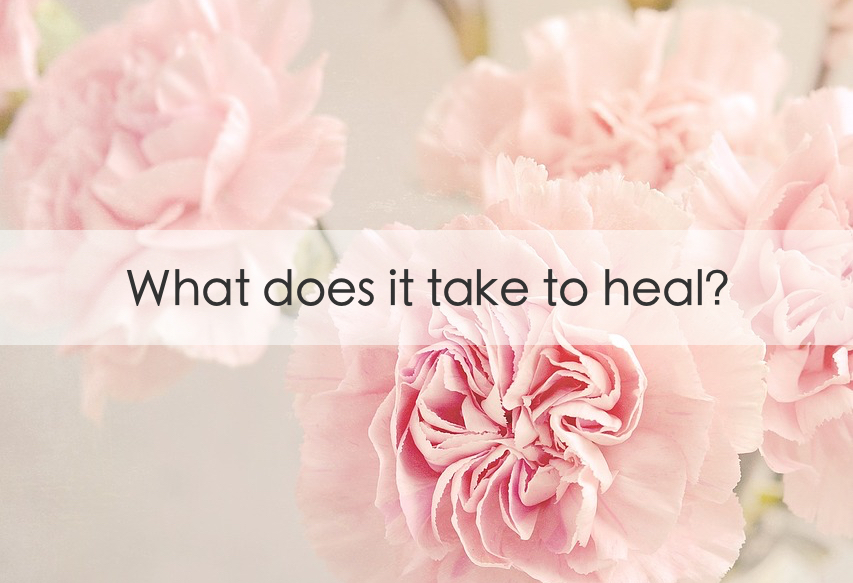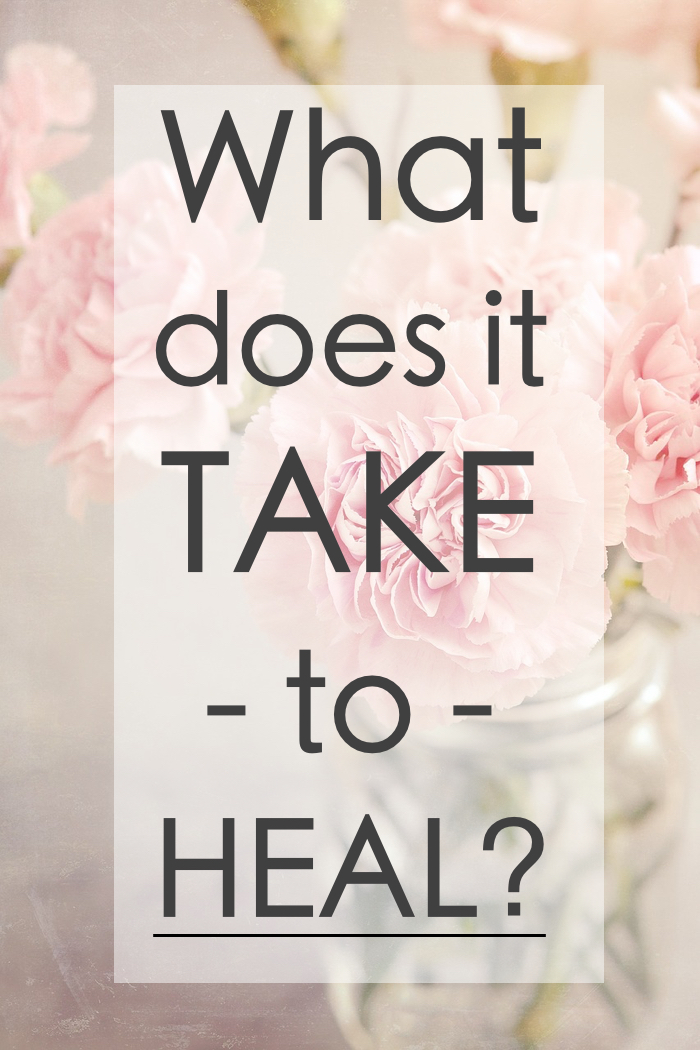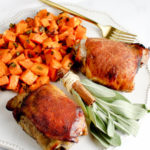
You have probably heard about the Paleo Autoimmune Protocol, also referred to as AIP. The Paleo Autoimmune Protocol is a specific version of the paleo diet with special adaptations made to address autoimmune conditions. It is a powerful healing tool designed to reduce chronic inflammation in the body, restore a healthy digestive tract, and regulate the immune system.
But did you know that the AIP is a nutritional AND lifestyle approach to healing? This means that healing from an autoimmune disease or a chronic illness isn’t just about the food you eat (or don’t eat). It is much more than that. It is also a lifestyle approach, a holistic way of healing that encompasses not only your diet, but also the way you sleep, the way you manage stress, the way you exercise, and the way you connect with others and nature!
Healing happens when you address all aspects of your life.
So, what does this mean for you?
Let’s just consider for a moment that you’ve got the diet part down. You know which foods you can eat and which foods to avoid. Now, once you have your belly full of delicious and nutrient-dense food that will help repair your body, there are a few more steps you can and should take to set the stage for healing to happen.
1 – Reduce emotional stress
Keeping your stress level as low as possible is paramount when dealing with an autoimmune disease. In fact, too much stress can completely derail your best efforts with your diet. Chronic stress increases systemic inflammation and can potentially worsen your symptoms. Not fun!
The good news is there are many ways you can reduce stress in your life. Meditation is, of course, an obvious choice, but there are many other techniques available to help you reduce stress that don’t require sitting still and emptying your mind of any thought! Here are some examples: guided relaxation, yoga, journaling, mindful stretching, massages, deep breathing techniques, keeping a gratitude journal, adult coloring, warm baths with relaxing salts, listening to calming music, dancing — the possibilities are truly endless. You just have to find one or two activities that you enjoy doing.
The purpose of relaxation is to disconnect your mind from all your worries and simply live in the moment, fully, without fear of the past or the future.
I suffered greatly from anxiety at the beginning of my healing journey. You can read more about it here and here. I made it a priority, and still do, to work at reducing my stress and anxiety. It’s not always easy to squeeze a relaxation session into my day; we are all very busy with various tasks and obligations. You can start small though, with just 5 minutes per day for example, and slowly increase the time as you get into the groove of things.
2 – Cultivate your sleep
This one is dear to my heart. I suffered a lot from insomnia at the onset of my autoimmune disease and I know intimately the toll it can take on the mind and body. Inadequate sleep increases overall inflammation and makes it harder for your body to deal with stress and pain.
For true, restful sleep, aim for seven to nine hours of sleep every night.
As with stress reduction, there are many techniques that can aid a good night’s sleep. Here are a few I found helpful when overcoming my insomnia:
- go for a gentle walk to get some fresh air and sunlight
- practice regular relaxation techniques to quiet racing thoughts and lower anxiety
- develop a bedtime routine to wind down at the end of the day
- keep overly stimulating activities for mornings
- eat a balanced and nutritious meal at least two hours before bedtime
- avoid sugary food and drinks, especially before going to bed
- prioritize calming activities in the evening such as taking a warm bath, reading an enjoyable book, gentle stretches, lighting a candle, applying essential oils, etc.
- make sure your bedroom is comfortable and inviting; keep it cool, dark, and quiet
- use earplugs to block out sounds, nose strips to open breathing airways, and a sleep mask if needed.
If you continue to experience insomnia after implementing these strategies, consult your doctor or therapist. They can help you.
3 – Practice regular exercise
Everybody knows that exercise has a beneficial impact on health. We were designed to stand, move, gather our food, and hunt after all! Exercise will boost your immune system, increase your mood, and help you sleep better.
That being said, at one point during my illness just getting out of the house for a short walk was the biggest accomplishment of my day! The important thing is that you keep moving. There’s no need to train for a marathon. In fact, exercise that is too strenuous can cause physical exhaustion and trigger an autoimmune flare, so take it easy, but be sure to move.
The key is to start slow and listen to your body. Begin with gentle activities like walking, restorative yoga, or swimming for example, Once you get your energy back and feel stronger, you can step up your exercise routine. I would recommend that you keep it low-impact though if you have sensitive joints like myself. Check out this post I wrote about exercise and autoimmune disease to learn more.
4 – Connect with others and nature
Numerous studies have shown that social isolation is associated with higher rates of mortality. Why is that? The reason is that we are intrinsically social creatures; we need connection in order to cope better with stressors, to recover from trauma, to heal, to thrive, and to be happy. Our wellbeing is influenced by the connections we make with our family, our friends, other people in general, with pets and animals, and even to nature.
That is why a good support system is important because it will impact your recovery in a positive way.
Where can you find support?
- family and friends
- doctors, therapists, and other medical providers
- church, counseling groups
- local AIP meet-up groups: there are now many AIP groups across the country that you can join. There might even be one in your area. Mickey and Angie, from Autoimmune Paleo, publish a monthly feature on their blog called Community Update, where you can find a listing of all local in-person meet-up groups.
- online AIP support groups: many of us have formed deep connections within the online AIP community. The advantage of these online groups is that you can connect with other people, suffering from an autoimmune disease just like you, pretty much anywhere in the world. Try these groups on Facebook: AIP Support – Autoimmune Paleo Recipes. If you are familiar with Instagram, search the hashtags #AIP #autoimmunepaleo #autoimmuneprotocol #autoimmunewarrior #autoimmunedisease #aippaleo #totesaip and disesase specific hashtags such as #hashimotos #hypothyroid.
5 – Remain hopeful
What we think and how we feel impacts our immune system. We are complex creatures and our minds and bodies are connected. Have you ever experienced a tightening in your stomach before an important event? Or perhaps trembling fingers and shortness of breath after a frightening incident? You see? That’s the mind-body connection. Our thoughts have the power to induce a physical reaction in our body. Entertaining negative thoughts towards yourself or losing faith in the future is common when dealing with an autoimmune disease, but it will not help you heal.
Try instead to be gentle with yourself. Give your inner voice permission to speak to you the way you would to a suffering loved one.
Remind yourself that others are walking the same path you are walking at this moment.
You are not alone.
Remember that many people, including myself, have seen tremendous improvements in their lives thanks to the Paleo Autoimmune Protocol, from a reduction of symptoms to a complete remission! If I can do it, so can you. Remain hopeful and focus on achieving a positive end result. It will help.
Final note: many people using the Paleo Autoimmune Protocol team up with a doctor or functional medicine practitioner, especially if they experience a plateau in their healing. It is often a necessary step in order to address hidden infections, nutrient deficiencies, hormonal imbalances, intestinal permeability, etc. If the AIP doesn’t seem to work the way you expected, talk to your practitioner about appropriate lab testing to uncover the root cause of your lingering symptoms.







[…] especially loved the chapters on Rest and Breathe. Stress management and sleep are such an important piece of the puzzle for me. Mickey and Angie have included tons of tips for […]